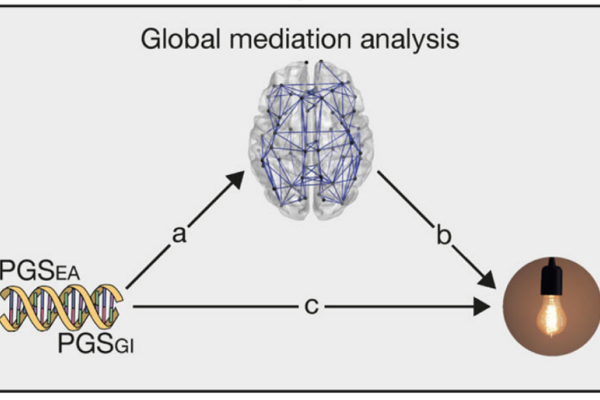2024-01-09

Intelligence is highly heritable. But you need to know the identity of thousands of alleles to modestly predict intelligence. Polygenic scores (PGS), which combine these effects into one genetic summary measure, are therefore used to investigate polygenic effects in intelligence research. But how do genes make brains smart? Scientists from Dortmund, Bochum, Berlin, Hamburg, Mannheim, and Luxembourg could show that intelligent individuals had larger cortical surface areas and more efficient cortical fiber connectivities, especially in parieto-frontal regions. These findings are a crucial step forward in decoding the neurogenetic underpinnings of intelligence.

Intelligence is highly heritable. But you need to know the identity of thousands of alleles to modestly predict intelligence. Polygenic scores (PGS), which combine these effects into one genetic summary measure, are therefore used to investigate polygenic effects in intelligence research. But how do genes make brains smart? Scientists from Dortmund, Bochum, Berlin, Hamburg, Mannheim, and Luxembourg could show that intelligent individuals had larger cortical surface areas and more efficient cortical fiber connectivities, especially in parieto-frontal regions. These findings are a crucial step forward in decoding the neurogenetic underpinnings of intelligence.